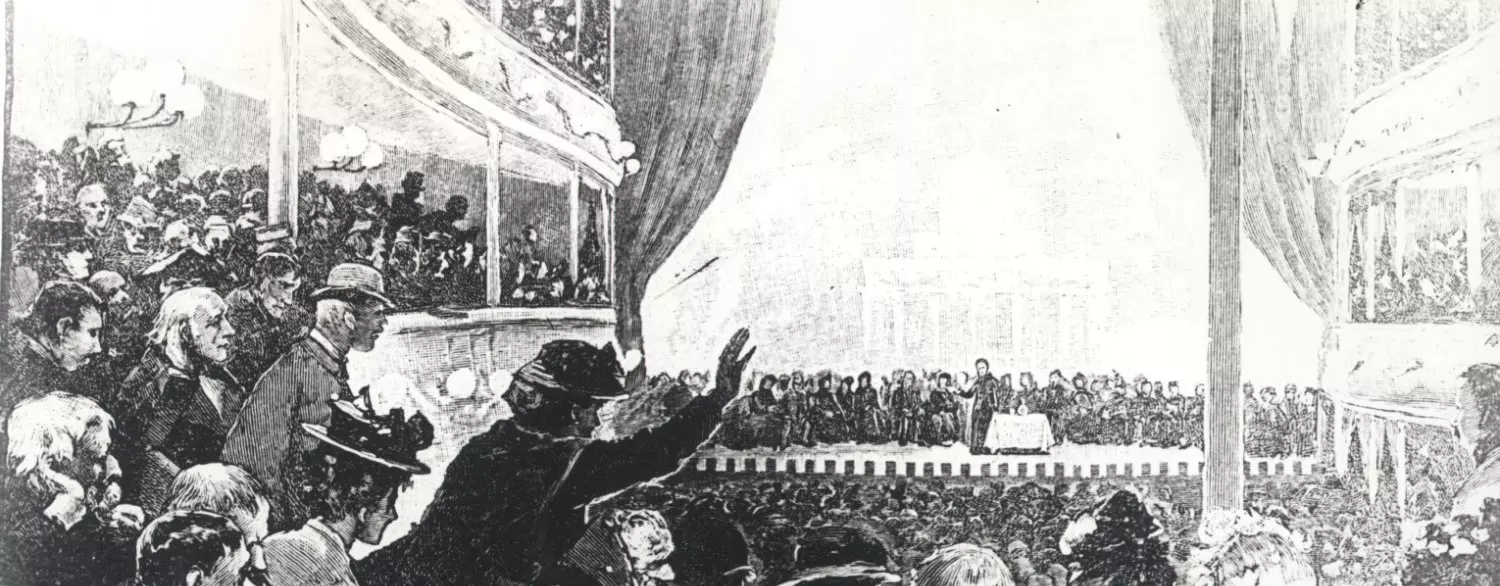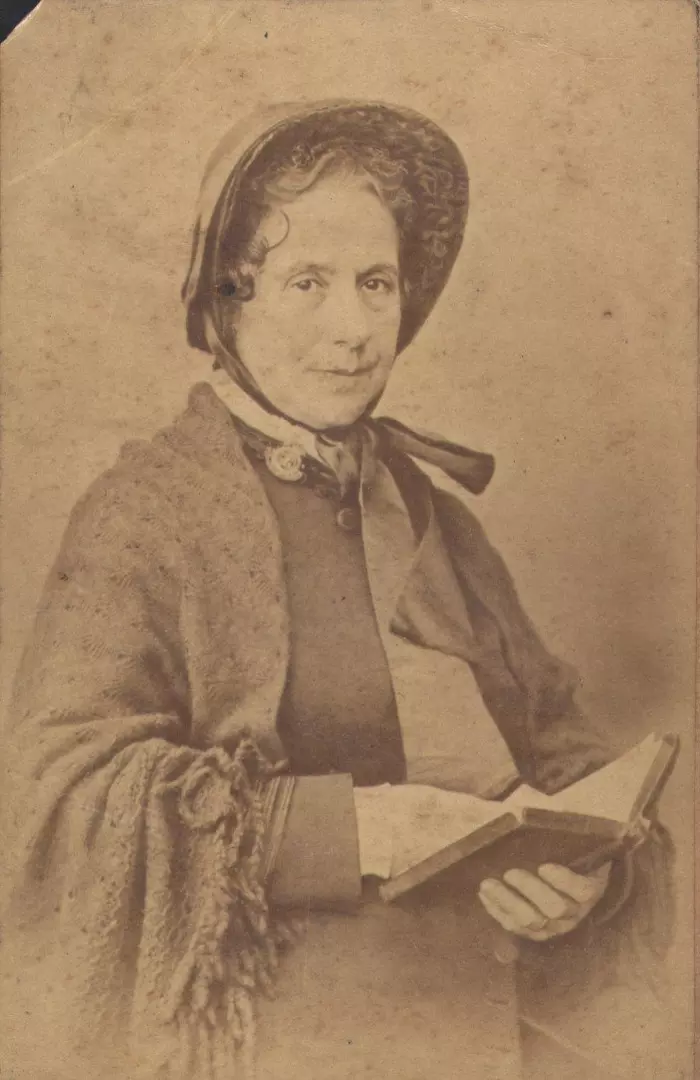Catherine Booth

Catherine Booth was born in 1829 in Derbyshire, to Sarah and John Mumford, a family of Methodist association.
Early Years
She received a strict evangelical upbringing and was home educated by her mother. Sarah imparted a strong sense of religious and moral conviction in her daughter, instilling the values of domestic piety, selflessness and the need to submit to God’s will. It is evident from Catherine’s adult life that these values remained centrally important to her and guided her actions in public and in private; they encouraged dedication to her duties as a wife and mother of eight and her commitment to The Salvation Army. Catherine’s beliefs can be explored in the multiple addresses she gave to promote The Christian Mission and The Salvation Army and in the books she wrote regarding Christian living.
From an early age, Catherine attended Wesleyan Methodist classes and was a supporter of the temperance movement; she was also an avid reader. The works of John Wesley and American revivalist Charles Finney particularly influenced Catherine; they inspired her with the ideas of holiness theology, the value of female ministry and the necessity of seeking new ways of presenting the gospels.

Women's Ministry
In 1855 Catherine married William Booth. They shared Methodist values and a passionate belief in the need for reform of the Church’s outreach to the ‘unsaved’. However, whilst Catherine believed in the potential of female ministry as a powerful tool to reach new audiences, William was initially opposed to women preaching. His opposition served to motivate Catherine to refine her arguments. She utilised an interpretation of the Bible which supported equality and challenged the precept that it was unfeminine for women to preach; these ideas were presented in her pamphlet Female Ministry; or, Woman's right to preach the Gospel (1859) which was published in defence of a contemporary female preacher, the American revivalist Phoebe Palmer. From 1860 Catherine began preaching herself. She was a successful speaker who won many converts and succeeded in changing William’s stance. Subsequently the value of female ministry was proclaimed by The Salvation Army and a statement regarding sexual equality in ministry was published in The Salvation Army’s Orders and Regulations. For many Salvationists Catherine’s legacy is this success in advancing an expanded public role for women in Church life.
Catherine is also celebrated for her commitment to social reform. She is known for her advocacy of better conditions and pay for women workers in London’s sweated labour, notably in the match-making industry.
Death
Towards the end of her life Catherine was ill with cancer and on 4th October 1890 was 'promoted to Glory' from Clacton-on-Sea. This was a deep blow to William as Catherine had been his closest companion and had been a considerable force in Army life, known for her effective oratory and powerful intellect. She is affectionately remembered by Salvationists as ‘The Army Mother’.

William Booth
William Booth was born in Nottingham on 10 April 1829, the son of Samuel Booth and his second wife Mary.

Booth children
William and Catherine Booth had eight children. Each became involved in Army work.

Early pioneers
Find out about the achievements of some of The Salvation Army's earliest recruits.

People
Find out more about The Salvation Army’s founders, leaders and early pioneers.